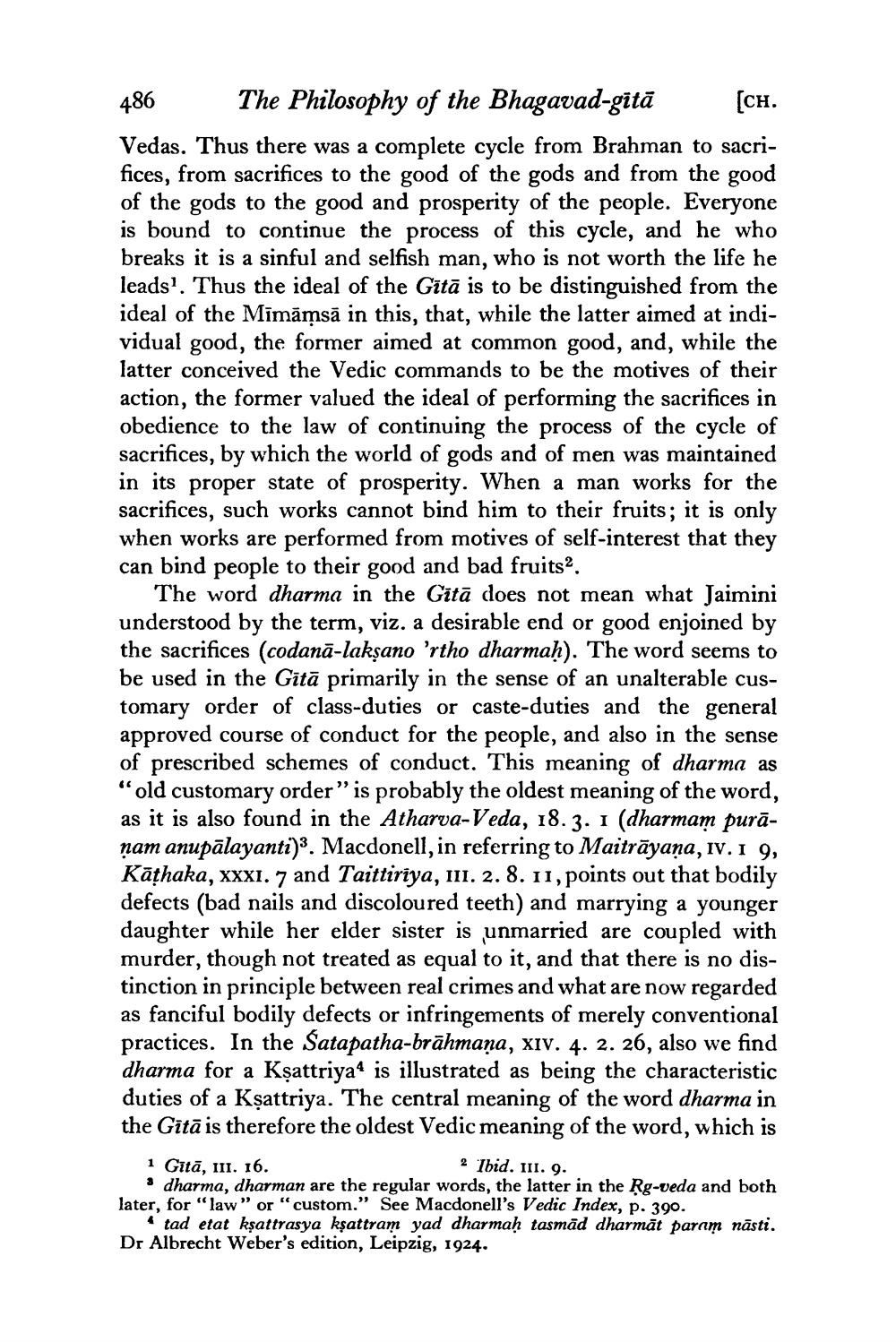________________
486
The Philosophy of the Bhagavad-gitā
[CH.
Vedas. Thus there was a complete cycle from Brahman to sacrifices, from sacrifices to the good of the gods and from the good of the gods to the good and prosperity of the people. Everyone is bound to continue the process of this cycle, and he who breaks it is a sinful and selfish man, who is not worth the life he leads'. Thus the ideal of the Gitā is to be distinguished from the ideal of the Mimāmsā in this, that, while the latter aimed at individual good, the former aimed at common good, and, while the latter conceived the Vedic commands to be the motives of their action, the former valued the ideal of performing the sacrifices in obedience to the law of continuing the process of the cycle of sacrifices, by which the world of gods and of men was maintained in its proper state of prosperity. When a man works for the sacrifices, such works cannot bind him to their fruits; it is only when works are performed from motives of self-interest that they can bind people to their good and bad fruits2.
""
The word dharma in the Gita does not mean what Jaimini understood by the term, viz. a desirable end or good enjoined by the sacrifices (codanā-lakṣano 'rtho dharmaḥ). The word seems to be used in the Gitā primarily in the sense of an unalterable customary order of class-duties or caste-duties and the general approved course of conduct for the people, and also in the sense of prescribed schemes of conduct. This meaning of dharma as 'old customary order" is probably the oldest meaning of the word, as it is also found in the Atharva-Veda, 18. 3. 1 (dharmam purănam anupālayanti)3. Macdonell, in referring to Maitrāyaṇa, IV. 1 9, Kāṭhaka, XXXI. 7 and Taittiriya, III. 2. 8. 11, points out that bodily defects (bad nails and discoloured teeth) and marrying a younger daughter while her elder sister is unmarried are coupled with murder, though not treated as equal to it, and that there is no distinction in principle between real crimes and what are now regarded as fanciful bodily defects or infringements of merely conventional practices. In the Satapatha-brāhmaṇa, XIV. 4. 2. 26, also we find dharma for a Kṣattriya is illustrated as being the characteristic duties of a Kṣattriya. The central meaning of the word dharma in the Gita is therefore the oldest Vedic meaning of the word, which is
2 Ibid. III. 9.
1 Gitā, III. 16.
⚫ dharma, dharman are the regular words, the latter in the Rg-veda and both later, for "law" or "custom." See Macdonell's Vedic Index, p. 390.
tad etat kṣattrasya kṣattram yad dharmaḥ tasmād dharmāt param nāsti. Dr Albrecht Weber's edition, Leipzig, 1924.




